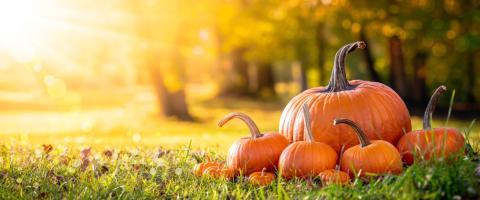ANR September 2025 Newsletter
ANR September 2025 Newsletter
September 2025 Edition
Agriculture & Natural ResourcesView Newsletter
Share this Newsletter
Additional Newsletters
Preview This Newsletter

|
AGRICULTURE & NATURAL RESOURCESNEWSLETTER - SEPTEMBER 2025 |
| Inside This Issue: | |
| What to do in September & October | Fall is a good time to invest in crocus, scilla, glory-of-the snow, and other hardy bulbs. Planting bulbs lossen the soil and make a hole with a trowel or bulb planter. |
| Recommendations for Taking Soil Samples | Soil testing is an important management practice for gardens, pastures, lawns, landscapes, croplands, and other agricultural lands. |
| Beneficial Snakes | Most snakes you encounter around your home are harmless. If you fear them, try to remember that they are useful - they keep the rodent population in check by eating mice, rats, chipmunks and even toads, insects and other pests. |
| Fall - Good Time to Plant Many Trees and Shrubs | Fall weather conditions and internal changes in ornamentals help root systems grow and decrease transplant stress. Ornamentals also lose less moisture because days are shorter, outdoor temperatures are lower, and rainfall is adequate. |
| Late Summer is the Best Time to Establish Cool-Season Forages | The period from late summer into early fall is the best time to establish common cool-season grasses such as orchard grass, tall fescue, timothy and bluegrass for pasture or hay in Kentucky. |
| How Much Hay Will Your Horse Need This Winter? | If conditions are such that you need to start feeding hay in mid-November and continue until the first of April, you will feed for about 150 days. The actual number will certainly vary with available fall pasture and when you can use pasture again in the Spring. |
| Think About Safety During Fall Harvest | Fall harvest season is a busy time for Kentucky farmers and their families. It also is a peak season for agricultural injuries and an especially important time for farm families to pay attention to safety. |
| Fall Landscape Care | Fall is considered a poor time to prune most woody perennials. Pruning will remove terminal buds that help to maintain dormancy in many species. |

